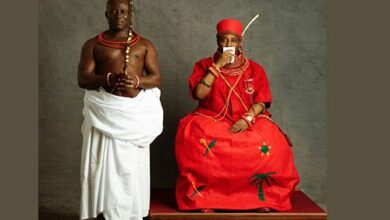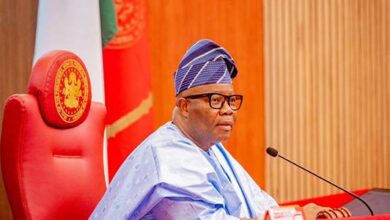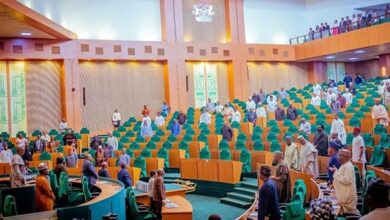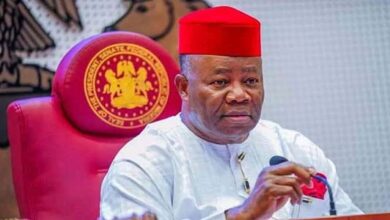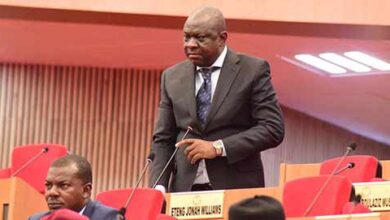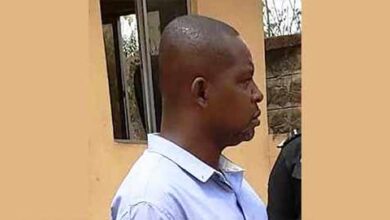Court Adjourns Yahaya Bello’s Money Laundering Trial To June, July After Procedural Dispute
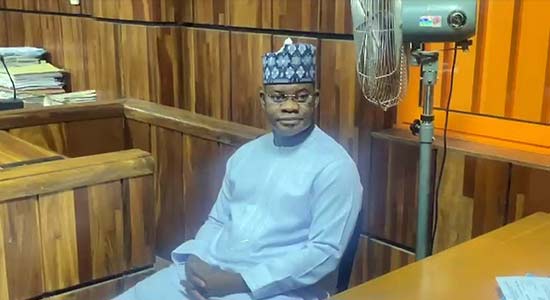
The Federal High Court in Abuja has adjourned the hearing of the alleged money laundering case filed against the immediate past Governor of Kogi State, Yahaya Bello, by the Economic and Financial Crimes Commission (EFCC) to June 26, 27, and July 4 and 5. The adjournment is for a ruling on the prosecution’s request to “cross-examine” the third witness and for the continuation of the trial.
Justice Emeka Nwite adjourned the matter after hearing arguments from both the prosecution and the defence on the EFCC’s attempt to cross-examine its own witness—a move opposed by the defendant’s counsel, Joseph Daudu, SAN.
During the session, the defence counsel asked the witness, Nicholas Ojehomon, whether he had testified in other courts regarding school fees paid by the Bello family to the American International School, Abuja (AISA). Ojehomon, an internal auditor at the school, confirmed he had, but could not recall the specific courts.
He acknowledged having testified in a similar case involving Ali Bello but maintained that he never made any statement implicating Yahaya Bello in that case, nor had he done so in the current trial.
After Daudu SAN concluded his cross-examination, EFCC counsel Olukayode Enitan, SAN, sought to cross-examine the witness on Exhibit 19. He argued that this was not a re-examination but a cross-examination prompted by the document tendered in court.
“I am not re-examining him; I am cross-examining him because they brought this document,” Enitan stated.
However, Daudu objected, insisting that under the Evidence Act, a party cannot cross-examine its own witness without first declaring them hostile. “You cannot cross-examine him based on the document without declaring him hostile,” Daudu argued.
Enitan responded by citing Section 36 of the Constitution, which guarantees fair hearing. He argued that since the defence had introduced the document, the prosecution should be allowed to question the witness on it.
Justice Nwite intervened, asking, “Do you have any provision of the law to support this?”
Enitan replied, “Section 36 of the Constitution ensures fair hearing. They tendered the document, and although we objected, the court admitted it. Fair hearing demands we be allowed to examine the document as well.”
Daudu disagreed, asserting that the prosecution’s position was procedurally incorrect and not supported by law.
After listening to both sides, Justice Nwite ruled that the EFCC could not cross-examine its own witness. “Under the procedure, the witness gives evidence-in-chief, the defendant cross-examines, and then the prosecution re-examines. If you’re so inclined to pursue this line, you must address me formally,” he ruled.
Following this, the prosecution counsel agreed to re-examine the witness, and the judge permitted it but warned against asking questions that resembled cross-examination.
However, when the prosecution proceeded with re-examination, the judge noted that the questions strayed into cross-examination. At that point, he insisted that both parties must address him on the issue before proceeding.
Daudu maintained that the prosecution’s approach was “a strange and unknown procedure not covered by the Evidence Act,” especially since the document (Exhibit 19) was introduced without proper linkage to the witness’s evidence-in-chief.
Enitan disagreed, referencing a Supreme Court decision in Amobi v. Amobi, which supported the right to re-examine documents introduced during trial.
He argued that the defence had objected to the witness commenting on the document earlier but was now seeking to rely on it—an inconsistent stance.
Justice Nwite then adjourned the matter to June 26, 27, and July 4 and 5 for a ruling on the procedural issue and continuation of the trial.
At the previous hearing, the third prosecution witness testified that there was no wire transfer from the Kogi State Government or any local government to the American International School, Abuja. He also referenced a Federal Capital Territory High Court judgment, which confirmed that there was no court order directing the school to refund any fees to the EFCC, nor any judgment classifying the funds as proceeds of money laundering.
